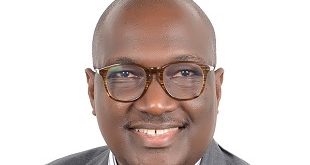
Big money at stake
A 2017 internal study commissioned by local office of the UK Charity, Oxfam, titled Securing a Fair Share of Ugandan Oil Revenues: A Revenue Risk Assessment Focused on TOTAL SA concluded that while Uganda has already demonstrated a strong commitment to protect its revenue interests during the exploration phase, mega risks lay ahead. Uganda won the Capital Gains Tax dispute with Heritage, the stamp tax dispute with TOTAL. It has also reviewed Double Tax Agreements, and its Office of the Auditor General has done recovery cost audits.
But the money in the next phase, the development phase, the study noted, will dwarf those of the exploration phase.
Oxfam, which is headed by Winnie Byanyima; a Ugandan, did not stop at commissioning this study—it shared findings with Museveni and his army of technocrats at Finance, Energy and even URA, insiders say. A source who attended one such meeting at State House Entebbe said the President couldn’t stop taking notes.
“Many hundreds of millions of dollars are at stake,” an Oxfam study noted, adding that Uganda faces major revenue loss risks through treaty shopping, the mispricing of oil sales, the inflation of project costs and potential profit shifting to the pipeline. And it appears officials are keen to limit these potential leaks.
President Museveni firmly belongs in the camp that plays hardball in negotiations. And the situation is not helped by the lead negotiator for the oil executives, Patrick Pouyanne, the Total SA chief executive. Pouyanne has built his executive management reputation around one issue; cutting costs.
Within Total, Pouyanne has built his career partly by cutting costs.
Since he took over in 2014, Pouyanne has elevated the company’s financial performance, partly through cost cutting. Given this, Pouyanne is not likely to be any softer on any of these issues that rotate around costs of the oil projects.
Total E&P, has already sued over order a government order (statutory instrument) seeking to control key decisions on midstream activities; including over the $ 3.55 billion East African Crude Oil Pipeline (EACOP). Total E&P is the main investor in the pipeline.
Total E&P sees these new rules as regulatory overreach partly because they grant government more control on the costs of midstream infrastructure, specifically, in the case of the French oil giant, the costs of the pipeline.
However, the Midstream Act empowers government to approve the pipeline tariff (now set about $ 12.7 per barrel of oil) and Museveni’s technocrat see this as a basis to have a say on the investment costs of the EACOP. Apart from this, experts say since government will own a stake in the pipeline, it has fair ground to claim a say on the costs as these have a bearing on the commercial viability of the project. That fight is still raging. Insiders say negotiations could soon resolve it.
Fight over taxes
But at another level, government and oil companies are involved in hot exchange over three tax issues.
One, government insists Total E&P cannot deduct tax costs worth over $600 million arising from the Tullow oil farmout deal. The URA and officials at the Energy Ministry cite the tax laws to insist that Tullow Oil had already booked the same as losses and as such these cannot be transferred.
Apparently, according to the law, these losses can only be inherited if the buying company is buying shares. Total and CNOOC are not buying shares—they are buying assets. The companies are also insisting that they are incurring these costs and therefore, they should be treated as tax losses the same way they were treated under Tullow.
Two, government insists the companies should pay income tax on first oil, meaning immediately oil starts flowing. This stems from a 2017 amendment of Income Tax Act. As a result of this amendment, government demands that oil companies pay income tax immediately oil starts flowing. Ordinarily, income taxes are imposed on profits, experts say. According to Production Sharing Agreements (PSAs), oil companies are supposed to start paying such taxes after recovering their costs, which according to some estimates could be in like six years of steady oil production.
Experts say that companies in other sectors are allowed a full deduction of their business costs in determining their income tax liability. They argue that denying oil companies full deduction of their annual business expenses, as government seeks to do, is contrary to normal principles of income taxation.
Three, the government wants the pipeline holding company, the Special Purpose Vehicle (SPV) for the pipeline, which will be registered in the UK to be a tax resident in Uganda, where it will have to pay taxes on its operations.
On top of this, government wants the same company to pay withholding tax (15 %) on dividends before they are paid to the UK Company. The companies are saying no.
This is all part of on-going negotiations for the Host Government Agreements (HGA). The oil companies have to enter HGAs with both Uganda and Tanzania, where the biggest portion of the pipeline passes all the way to the coast in Tanga. The agreements spell out obligations of the two governments and the oil companies, amongst others.
Insiders tell The independent that the matters before court case could be resolved soon. But the tax issues could drag on because they are many and have long term impact.
 The Independent Uganda: You get the Truth we Pay the Price
The Independent Uganda: You get the Truth we Pay the Price




It is said oil discovery is a curse. The reason is that business sharks want to steal oil proceedsand leave the country poorer than before. His Excellency is right though it shouldn’t take a lot of time to begine the production.
We need to get going.
In any negotiation, you can’t have it all. Lose some win some and create the win win situation. There is a bigger gain when activity starts.
The issue stems around taxes and am disturbed to see up to the end point, it’s not clear how to deal with taxes on such a big deal.
If this is not reviewed seriously with a business mind, nothing will be unlocked.
His Excellent is right, make the right decision for the future.
1 like our man, no bullying, full stop.
THIS is playing to the gallery and naive people like you
HE is trying to appear macho but at the end of the day, these oil companies have been in the business for a very long time, and though may appear as if they are different oil companies while negotiating with the idiots and greedy people that most of our RULERS are, they are a cartel and they hunt together like a pack of wolves and they will ultimately get their prey.
IT is just a question of them being able to pay the right price, they know very well, just like in any negotiation, each side tries to play hard, in order to extract the maximum, but they know at some point there will be a meeting point.
AND our RULER is not playing hardball in order to benefit the country, but like he said in his statement with the KENYAN journalist, and again while giving a speech was it in Fort Portal, he is not anyone’s servant and he is working for his interests and those of his children and grandchildren. If he does anything that benefits the country, it is purely by accident or as a by product of taking care of his interests.
SO what makes some fools think that on this particular occasion he has the interests of poor UGANDA at heart.
ONE of the few leaders we have had who could not be compromised was IDI AMIN, whatever other shortcomings he may have had.
DREAM ON
excellent insight. It’s a smokescreen
Yes His Excellence is right. Magufuli style, is the best way to go. Proper negotiations favouring the Government and Wanaichi
HE, keep strong. That is the way to go. We appreciate your understanding of issues.
IT is because of this oil that someone went to the bush leading to the killing of so many innocent people and the destruction of peoples property.
ONE intelligence officer, then working in Obote’s presidents office, in the economic intelligence department under the now heavily rehabilitated Rwakasisi, came across information that Uganda was sitting on oil.
IN his twisted mind, he decided then, that it would be him and him only who would preside over the production of that oil, and promptly used that information, notably from the likes of Tiny Rowland of LOHNRO to obtain financing for killing Ugandans in unwarranted wars.
EVEN up to now , it is the reason for super gluing himself to power and as you have severally heard calling it “MY OIL” and id++ts like John, Peace, Komakekech think that he is fighting for their interests.
Believe me, one of the reasons the oil is delaying is because it is heavily mortgaged .
I have it from a well placed knower that the oil will be drilled to pay (not to earn revenue) an already stashed away debt. The ‘owner’ of the oil, utilising benefit of hindsight and learning from others’ mistakes, opted to be paid first so that any fights will be against international companies; who already own it. The ‘oil-owner’ is cleverer than all people combined………….has out-foxed them again. Who said you cannot fool all the people all the time? with Ugandans it looks like it is possible.
Sorry to say it but Uganda will never produce any oil.
The investors would first have to sanction a project for $20bn, to fund oil field development to production, build the pipeline and refinery.
They would have to be insane as they would be guaranteed to lose all their investment.
Uganda is completely uninvestable.
But as far as the ordinary Ugandan is concerned, maybe it is for the best, the big men would take it all anyway.